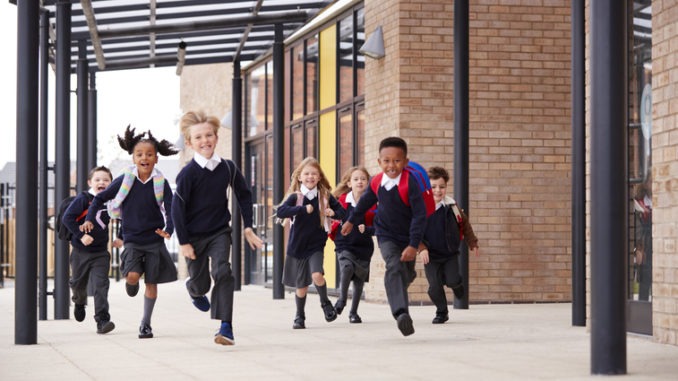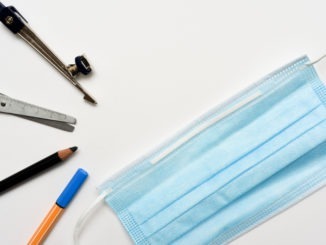
As reported by BBC news, millions of pupils have returned to classrooms in England and Wales, amid fears of a spike in COVID cases
Pre-term COVID testing is being used to limit infection, but rules on social distancing and face masks have gone. Scientists have warned of a rapid rise in school cases without such measures and experts have not recommended jabs for healthy 12 to 15-year-olds. Ministers want a return to normality, but cases are more than 30 times higher among children compared with last year.
In the week to 28 August, there were more than 300 COVID cases per 100,000 among five to 15-year-olds. This compares with less than 10 per 100,000 in the same week of 2020. Head teachers are hoping for a much smoother term but also want school safety measures to be kept under review.
Geoff Barton, head of the Association of School and College Leaders, says there is less uncertainty about how the coronavirus may impact on schooling, but he wants the government to be ready to “step in with support” if needed.
Although health officials are clear young people are likely to have milder symptoms from COVID, there is still anxiety among some pupils about how the term will work out, after 18 months of intermittent disruption.
Bournemouth A-level student, Olivia – a member of the NSPCC’s young people’s board for change – says she finds the prospect of just carrying on “very daunting” and has asked if she can repeat last year.
“We’re being dropped back into this new normality, where you’re meant to be applying to university and sitting your A-levels as if nothing has happened,” says the 17-year-old.
Modified exams have been pledged in all four nations, but there is little detail yet on England’s plans for these, and pupils and teachers are asking for more information.
National Association of Head Teachers general secretary Paul Whiteman said schools were focused on helping pupils recover from the disruption. But he added there were ongoing concerns around the level of support offered by the government and more funding was needed to ensure pupils get what they need.
A Department for Education spokesman said this term’s safety measures strike a balance between making schools safe and reducing disruption.
“We know the past 18 months have been incredibly difficult for young people, and we have invested more than £17m to build on the mental health support currently available in schools.”
The NSPCC says concerns over the school return were a frequent theme during its ChildLine counselling sessions this summer. Between the end of June and 16 August it delivered 441 counselling sessions related to going back to school or college. One 14-year-old anonymous caller to the helpline, whose sister is clinically extremely vulnerable, said: “I haven’t been to school much over the past two years.
“It’s quite scary to think that… I’m going back to school full-time and the rules on masks and social distancing have been eased.”
Northern Ireland GCSE pupil, Aoife, is worried about school work. As a second year GCSE student she would have completed most of her exams by now.
Aoife struggled working from her bedroom during lockdown and says: “Even coming home now, it feels different to how it did before COVID.”
She has found it particularly hard to deal with not knowing what is going to happen next.
“It’s horrid when you don’t know if the decisions that are being made for you are the best or just the easiest at the time,” she adds.
Some schools across England, Wales and Northern Ireland have already opened their doors to pupils – some to offer COVID testing or to start lessons.
Blackburn pupil Muhammad Sahal, 14, also an NSPCC board member, is looking forward to seeing friends and getting back to his studies.
He worries about the face-to-face teaching he has missed and says there has not been “much normal during my time at secondary school”.
“It’s great that the school bubbles have gone, however there are concerns such as the rise of COVID cases in Scotland.”
Schools in Scotland re-opened mid-August, as usual, and this led to a faster rise in COVID cases despite social distancing measures staying in place.



Be the first to comment